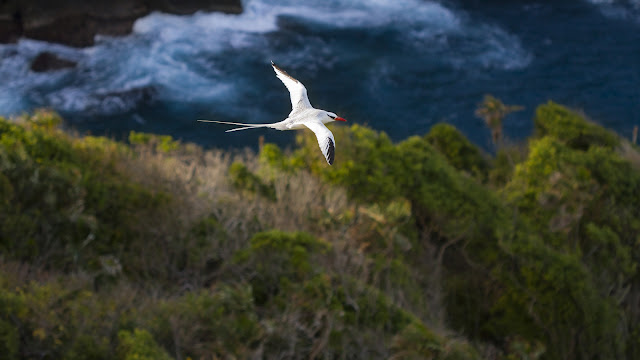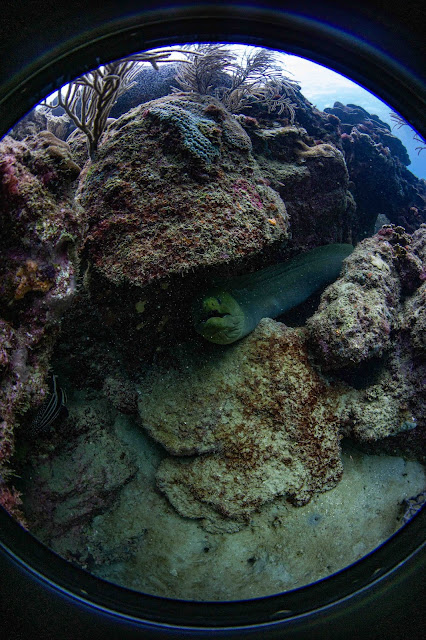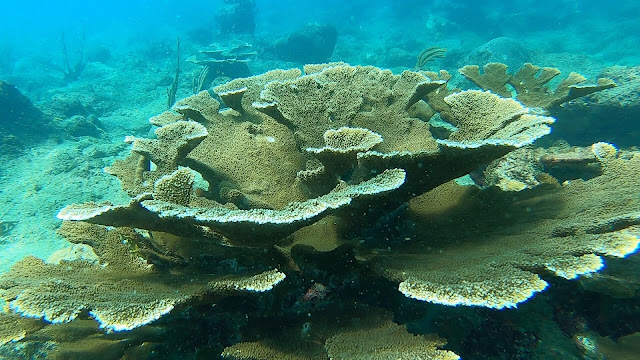Sampling the World
Faraaz Abdool reports from the international tourism marketplace ITB Berlin held in Germany in March. All photos courtesy Faraaz Abdool
The world’s largest tourism trade fair - commonly known as the ITB has been held annually in Berlin Germany since 1966. The Internationale Tourismus-Börse which means “international tourism market,” seems to include all aspects of natural history and culture, from all over the world. Every year tourism players from across the world journey to Berlin to display, promote, and make new connections to improve their tourism industries, to enhance attractions and pull visitors. It is an opportunity to network, learn and gain new insight into what might be marketable.
While government agencies such as tourist boards, ministries, and foreign offices occupy significant floor space, there are several exhibitors - cruise lines, airlines, hotels, tour operators - that offer services to multiple countries. The UNESCO World Heritage Centre draws attention to World Heritage Sites across the world; one of the newest of which is Northeast Tobago. Their presence supports the case for sustainability in the tourism sector.
Global tourism is on the rise again as the effects of the Covid-19 pandemic are slowly being relaxed. The ITB migrated to virtual platforms in 2020, 2021, and 2022, but returned to the physical space at the extensive Messe Berlin in 2023. This year, under the auspices of the Federal Republic of Germany and the German Embassy in Trinidad & Tobago and Jamaica, a small Caribbean delegation were invited to attend the ITB Berlin.
Our special group had the opportunity to interact with representatives and sample products from over 160 countries. Further, the ITB is an occasion to be part of leading ideas and concepts informing the latest travel trends. Cutting edge research is presented to the public in structured talks in small theatres within the ITB; one has the unenviable task of choosing from over four hundred discourses scheduled over three days! Networking is paramount for most attendees. Countless discussions take place over country delicacies and specialities, and relationships are forged on the fly for individuals and the countries they represent.
Opening in Oman!
Attend the ITB, they say, and you can travel the world in a day. This must be an exaggeration, we thought. However, from the immersive opening event hosted by Oman it was clear that this was no over-statement. Tremendous wrap-around screens brought the star-studded night sky overhead – stargazing is a notable activity in Oman. Then, traditional and contemporary dancers accompanied by the Royal Oman Symphony Orchestra wove a unique narrative and soundscape of classical and folk music. All members of this mixed orchestra were trained in Oman; the orchestra’s setlist included an original composition by their Omani conductor which was specially written for this performance and venue. Once the concert was over, everyone was treated to Omani cuisine. As a presentation, it was impressive, and as a strategy, it was instructive: here was the art of cultural immersion – the stimulation of various senses to elicit a deep feeling of connection to a place.
Colombia: High quality coffee and chocolate are among
Colombia's finest pleasures.
Morocco: A shoemaker crafting traditional
slippers or "babouche", just as you experience in one of Morocco's
markets or "souks". 
Etihad Airways: Visitors got to experience first
class seats from Etihad Airways. 
Throughout the next couple of days, the marketing structures and methods of a vast array of countries and companies offered samples of any and everything from chocolate to hand-made shoes. Vivid colours and trendy graphics grabbed the attention. Eager country representatives approached with short friendly conversations. It must have been a monumental task to determine what one must do in order to stand out! Some airlines offered people a seat in first class, not on a flight but in a replica cabin. Word quickly spread about Colombia offering exceptional coffee and chocolate – both delicious. Treat yourself to an authentic Swiss or Thai massage, free at ITB. Musicians in traditional dress from Morocco or Borneo played and danced. An Arab man with a teapot and a sword looked at me, said nothing, and poured me a small cup of heavily spiced tea. As I worked my way from booth to booth, country to country, it truly felt like traveling the world.
Saudi Arabia: Synonymous with oil, Saudi Arabia
has embarked on efforts with the vision of tourism accounting for 10% of its
GDP by 2030. 

East Africa: Wildlife is pivotal to safari
marketing strategies
Ever present Nature
In every
place, traditional dress and food spoke effortlessly of the culture of
the people. The other significant marker in each place was the depiction of the
natural world; geography, flora and fauna, desert, ocean, mountain, valley or
plain, city or savannah.
Nature was a pervasive presence within the Messe Berlin convention centre. Almost every booth projected some aspect of untouched Nature. On the most fundamental level, the sounds and sights of Nature are comforting to us. We are natural beings, after all.
Much of this natural presence was not directly linked to the tourism product, but formed the setting within which many activities could be pursued. Whether hiking trails, pristine beaches, or magnificent wildlife, all tourism seems to have nature-based backdrops. In the Caribbean, we are soon to be outdone if we do not include our natural vistas beyond the beach. Destinations across the world are selling our model – sun, sea, sand - to surprising effect, including many middle eastern countries. We must go beyond.
The visitor in 2024 is expected to be looking beyond the superficial and easily duplicated activities. Parties and nightlife, for example, did not feature prominently but traditional artisans like basket-weavers and shoemakers did. Waterfalls, safaris, and scuba diving experiences adorned countless screens throughout the fair. Worldwide, there is extensive awareness and significant effort towards ensuring the highest standards regarding ecological and social welfare. The ITB openly commits to climate, environmental and animal protection and human rights in tourism.
Trinidad and Tobago stands to gain much from paying attention to the latest developments within this thriving international industry. Both islands working together, with minimal investment, can offer a wide and wonderful variety of world-class experiences within a single territory that is easily accessible and manageably sized with comfortable infrastructure and amenities.




